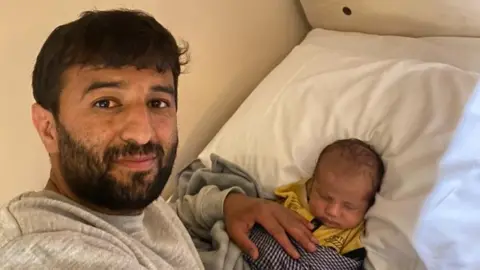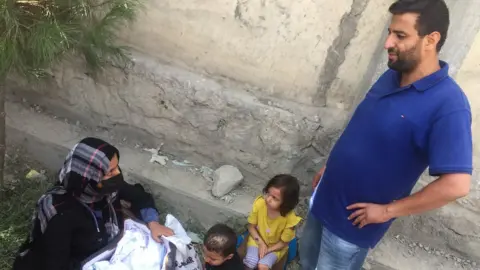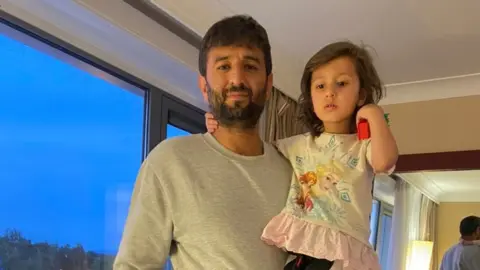Afghanistan evacuation: Bittersweet relief for interpreter now in UK
 BBC
BBCWith evacuation flights now reaching the UK, one BBC correspondent caught up with one Afghan evacuee he first met in the crush outside Kabul airport.
Khalid, a former British Army interpreter, has just arrived in the north of England on an evacuation flight from Afghanistan. Speaking from his hotel room, he has a broad smile.
"It feels fantastic, it's very good," he says.
We first met Khalid close to Kabul airport on Friday, along with his wife, two young children and a newborn baby. They had been granted permission to fly out by the UK embassy, but the crowds around the gates were so large and panicked it was impossible for them to get through.
Amid the dirt, heat and rush, he was terrified that his baby could die.
"I thought to myself I will never be able to enter the camp… my baby was in a bad situation," Khalid told the BBC. His ordeal included being lashed by the Taliban whilst in the crowd.

Most of those camped out in dire conditions at the airport have not yet been granted visas. They're so desperate to leave that they've turned up anyway, clutching documents proving they worked with international troops or foreign embassies. As a result of the huge crowds, those with permission are struggling to get through.
We managed to alert British soldiers to the condition of Khalid's family, who were able enter the secure compound where evacuees are processed. Khalid's wife and baby received medical care, before they were all flown to the UK.
Leaving Afghanistan was a relief, but the moment was bittersweet. Khalid feared being targeted by the Taliban for working with British forces, despite promises by the group of an amnesty.
"They are saying these things now, but no-one knows what will happen in the future," he said.
"When you leave your country, your people, especially your sister, your brothers, your mother, your everyone… because of those things I was sad, but now I am happy in the UK."
Khalid is particularly concerned about friends and close family members who worked for British private security companies in Afghanistan, but who have been told they are not eligible for relocation. He's urging the British government to allow them to travel too. Many others who want to leave will not be able to.

